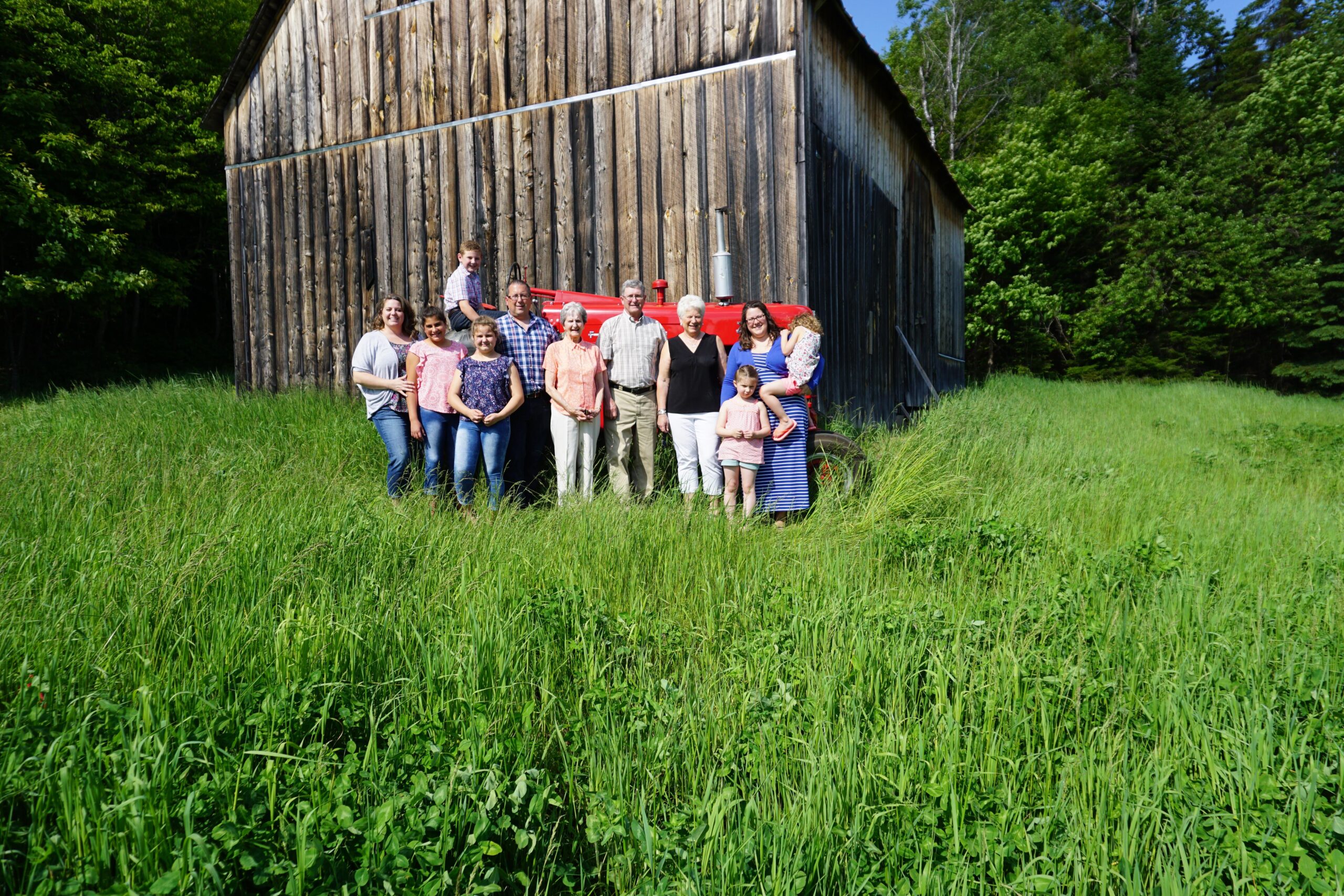
PRESQUE ISLE, Maine — The Maine Potato Board has selected the Steve and Fred Whited family of Bridgewater as the 2017 Farm Family of the Year. The Whited family has a long history of farming in Bridgewater, and Fred is the sixth-generation farmer in his family.
Steve and Joy Whited live on the “home farm” in a home they built. Fred and Rachel Whited live close by and have three young children: William, 8, Ava, 10, and Anicia,11. As Fred and his father put it, there’s “no better place for a kid to grow up and learn responsibility and a work ethic than growing up on a farm.”
Growing up on a farm herself, Fred’s wife, Rachel, makes it a priority to keep the kids awake for a late dinner with dad during the busy seasons and getting them to the field to see their father whenever possible.
“When my son was just a baby he would hum to the sound of the harvesters airhead and put himself to sleep in minutes,” Fred said. “I would have to hold his head from bumping the window when turning on the headland. Probably a regular occurrence on many family farms.”
Rounding out the next generation is Fred’s sister, Erin’s, family. She is married to Dana Johnson and teaches in nearby Mars Hill. They have two daughters: Denver, 6, and Libby, 5.
The Whiteds’ farm is 1,000 acres, primarily in Bridgewater.
“There are only five other growers that live in Bridgewater now,” said Steve Whited. “There used to be a dozen. But I believe the amount of acreage grown in the county has stabilized around 55,000 acres. That’s good.”
The family grows a dozen varieties of chip stock seed potatoes on 425 acres, assorted grains and legumes on another 425 acres, and the balance of their acreage is on a three-year rotation. As Fred puts it, “We’re rotating our rotations any place we can’t utilize a three-year program. Every effort is beneficial when land base is limited.”
According to the Whiteds, one of the biggest changes to impact the Maine potato industry is technology. Social media and e-mail allows growers to share and have near instant contact with their customers and vendors, and in particular the widespread use of GPS tools provides the grower with amazing ability to program farm machinery.
“I expect that maybe 50-60 percent of growers utilize GPS equipment now, expect it will rise to probably 90 percent at some point,” said Steve.
Fred said, “We’ve all seen the benefits and efficiencies cutting edge technology provides in our fields and storage facilities.”
Both Steve and Fred emphasize that as much as new technology and efficiencies help, growers still need good people to work the farm. “We’re fortunate to have good people, dependable and focused, working for us. It makes a big difference,” said Fred.
Their advice to young people considering farming as a career? “Go to school,” said both father and son. “Get a good education, study agronomy or anything that will expand your mind, and go away for college if you can. A new place and new people will teach you a lot that will stay with you and give you new perspectives.”
Fred Whited received a bachelor of science degree in bioresource engineering from the University of Maine.
“Probably should have had more agronomy,” he said, “but my engineering background shows me how systems and mechanics work. Real important.”
Steve went off to Orono as well, but only spent a year in his program. “I had five acres of potatoes on the farm and the price of potatoes went sky-high that year. Bought a pick-up. And then my grandfather passed away, and I moved into full-time farming with my father.”
Maintaining a strong relationship with customers is an important part of the industry, the Whiteds said.
“Rather than the brokers of former days, my personal contact with customers is critical today,” emphasized Fred. “Using e-mail allows me to know my customers and understand their needs and speak with them as often as I can.”
Fred has taken over sales and customers, providing a more personal relationship with growers all along the Eastern Seaboard. The Whiteds sell about half their chip stock seed in Aroostook and the balance to growers all along the East Coast.
Though farming is challenging, the Whiteds consider themselves fortunate to be able to live and raise families in a farming environment. Steve’s wife Joy shared that as a young woman she was determined NOT to marry a farmer.
“And I have loved every bit of it,” she said. “It’s a great way of life, and allows parents to teach and demonstrate a strong work ethic to the children. A wonderful way to learn and grow up.”
The Bridgewater Whited descendants are still very close, with many returning to the farm in Bridgewater for the Christmas holiday.
Steve and Fred consider themselves fortunate that over the years and generations, they have benefitted from the experience, counseling and encouragement from multi-generational fathers and grandfathers.
“Farming can be demanding today as it requires more acres to make a smaller margin,” said Steve.
“But,” added Fred, “we’re fortunate to be able to address the challenges and appreciate the rewards as a family.”







